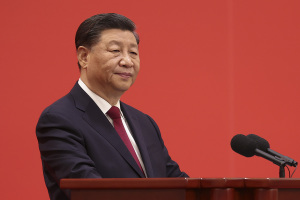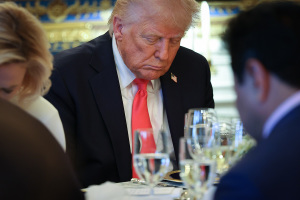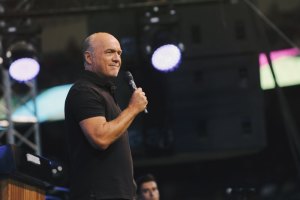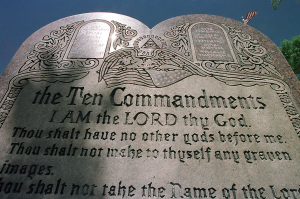Pulpit Freedom from the IRS
Less noticed than its law-breaking advocates hoped it would be, given the economic turmoil of the week, dozens of churches defied federal regulations and used their pulpits yesterday to challenge IRS regulations, which insist that tax exempt organizations dare not spend a "substantial part of [their] activities in carrying on propaganda, or otherwise attempting, to influence legislation." When this line was added to the tax code, the intention was not to target religious organizations but to deny tax-exemption to "sham" or "front" organizations which used religion to propagate a particular agenda. Also added to the code in 1954 by Senator Lyndon B. Johnson was a denial of tax exemption to organizations that "participate in, or intervene in (including the publishing or distribution of statements), any political campaign on behalf of any candidate for public office."
Yesterday, as announced, preachers and congregations, with the backing and on the impulse of the Alliance Defense Fund, staged a "Come and get us!" program called "Pulpit Freedom Sunday." Preachers announced that they, in the name of "pulpit freedom," would very explicitly taunt and defy the IRS, which does try to be non-partisan and fair in efforts to enforce the law. My May 19th column described how The Christian Century, which was and is close to my heart and word-processor, had to give up tax-exemption in 1964 when, in a momentary fit of Goldwater-as-President panic, it ran a cover supporting Johnson. One of our Catholic counterparts chose to give up tax-exemption rather than comply with regulations; that was an act of integrity few religious organizations could even contemplate imitating.
On subjects like this, most citizens come to recognize that there can be no pure, clear, determinative, or final decision as to what is involved. It is hard to define "religion" or "organization" or "substantial" support. It is easy to see that tax-exemption, a privilege taken for granted but argued for on often-shaky grounds, is secure: Try to get elected to Congress while advocating removal of the privilege. It is hard to know exactly when someone oversteps the boundaries. Catholics, Lutherans, the Salvation Army, and many other public policy groups devise legally air-tight separate divisions for advocacy or political action, and refrain from mixing "religion" with those divisions.
No doubt myriad violations occur in pulpits and church bulletins, but most of them tend to be casual or subtle or only semi-substantial. The Pulpit Freedom Sunday of the Alliance Defense Fund does not want to be casual or subtle or less than substantially substantial. The preachers it backs and propels want to make this a law-defying act of "freedom." We can be sure that opponents of this generally right-wing political cause will be provoked into counter-testing, asking the IRS and the feds to insist on support of law. Is this a real "pulpit freedom" issue? Some want to compare it to Martin Luther King and conscientious objectors and any who appeal to a "higher law." But King and the objectors know that they are vulnerable to arrest or penalties, and have often paid them by sitting in jails. The Pulpit Freedom advocates appeal to no "higher law;" they simply want the freedom to break existing laws. They may serve some purpose by forcing more definition from IRS and church leadership, but most immediate purposes are to be straight-out political and to have the citizenry at large pay, indirectly, to subsidize their messages.




























